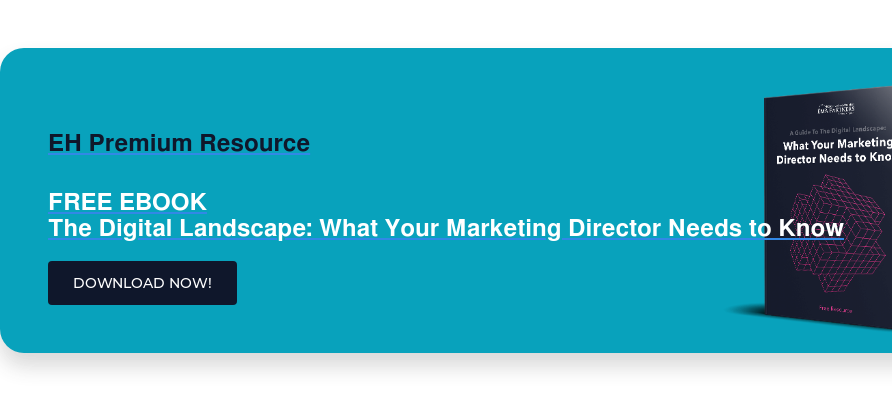Planning on creating a marketing strategy for your business? Want to know where to start? A marketing plan for a business is essential for success. There are lots of factors to consider when you’re looking to kick-start your marketing with a dynamic campaign.
You’ve got to plan carefully and know what to include in your marketing plan. In this insight we’ll discuss some marketing ideas for businesses looking to implement an innovative strategy.
Key Elements of a Marketing Plan for a Business
A good strategy incorporates a variety of features. The more detailed your marketing plan is, the more depth and substance it has. A well-structured, multifaceted marketing plan is a successful one. Here’s some of the key elements that you should include in your marketing plan.

Buyer personas & research
Before you start, remember the number one element for creating a successful marketing strategy. Do your research!
Without reliable research, your plan has no base. You need to know who you’re targeting. Otherwise, you’re just throwing out aimless content and hoping to catch some business. The ability to conduct useful, detailed research is one of the key skills of a Marketing Executive.
You should form your buyer personas and keep these at the centre of your marketing plans. Your buyer personas are your target audience. They’re the people that your content is aimed at, the people who are most likely to do business with you. Research your market and your audience, and form reliable, accurate buyer personas.
Segmentation and targeting
After you’ve created buyer personas it’s time to start segmenting. Segmenting your audience is vital to effective, targeted marketing. Not all your customers and clients are the same, so they shouldn’t be treated as such.
By segmenting your audience, you’re able to send personalised marketing to smaller groups of contacts.
This can be very effective, as it allows you to market the right things to the right people. It also stops you from bombarding contacts with irrelevant marketing. Doing that will only disengage your audience and potentially lose their business.
There are many pieces of software that will allow you to easily segment your contacts list. Utilise them. Invest the time into segmenting your audience, and don’t forget to regularly revisit and re-segment when necessary.
Original, useful content
Content marketing is the most important part of your marketing plan. In 2018 original, creative content is king. The best way to appeal to your audience is by creating content that they want, content that they’ll find useful. Blogs are a great way of doing this.
When you think of blogs, don’t think of just internal news and self-congratulatory achievement sharing. Think of the opportunity to share relevant insights within your industry. Think of the opportunity to give your audience what they’re looking for, help them.
Provide a range of high-quality, original content for your audience like blogs, ebooks and guides. The wider range of content you put out the better. Make sure you have a dedicated content marketer to produce this content. When recruiting, look for Marketing Executive CVs that show successful experience producing original content marketing material.

Strategy calendar
So now that we’ve established the importance of content marketing, what’s next? A strategy calendar.
Your content needs to be regular, and it needs to be frequent. You need to keep your audience engaged, which means providing a regular stream of content.
You should create a content calendar to schedule content each month to make sure your each segment of your audience is being catered to, and not neglected. This also ensures you continue producing a range of content, rather than focusing too much on blogs/emails etc.
SEO strategy
As we stated, organic traffic is extremely valuable. But how can you help generate organic traffic? You need to use search engine optimisation (SEO). SEO determines how visible your content is in search engines. You want your content to turn up at the top of the first page of search engine results when people search for your keyword.
Take the time to research good SEO practice and apply it to all your content and your web pages. This will increase your domain authority and boost your content. Your domain authority is the indexability of your entire domain (website). So whilst each page on your site has its own SEO strength, your domain authority counts towards the overarching SEO strength of every page on your site.
For each piece, research your keyword, find the ones you want to target, and boost your SEO for those keywords.

Social media calendar
In addition to a calendar for producing content, you should implement a schedule for publishing it. You want your content to be in your customer’s mind. You want them to see that you provide regular, fresh content that’s tailored to their needs. Makes sure that all social media channels are covered to maximise engagement levels.
Research which social media avenues are the best to pursue. You should find out where your target audience frequents; what websites they visit and what social media sites they use. Do they use Twitter? Facebook? LinkedIn? What about more niche sites? Find your audience and market there.
Paid advertising
Pay-per-click refers to paid advertisements for your business. This is often done through Google AdWords. Pay-per-click allows you to distribute advertisements across the web to potential customers. You pay a small amount for each click that your advertisements receive.
This can be a great way of bringing in a new audience but be wary that you need to target your ads correctly. Otherwise you’ll be wasting money on clicks with no value. Many people also use ad-blockers, which means your ads can be filtered out, so don’t assume they’re reaching your whole audience.
Also keep in mind that while pay-per-click is a useful addition to your plan, you shouldn’t rely on it. These clicks are usually less valuable than organic traffic, so you should always place focus on increasing organic traffic using…
Creativity
Good quality marketing content is creative and original. Think outside the box when producing your marketing material. Stand out. Keep your audience engaged.
Think about what kind of content will excite your audience and make them think “I need to check this out”. Think about your companies reputation and how a healthy public reputation can enhance your profile.
Some of the best marketing campaigns have been based in creative application. Try tailoring your content to your industry/sector in a unique way. Think about marketing applications that can only be found in your niche.
Remember not to ignore traditional marketing as well. Online marketing is taking over for sure, but traditional marketing practices still have a place. Remember that no everyone is online all the time. It can be easy to fall into focusing on Google indexing and LinkedIn presence too much. Remember that there’s a good percentage of people who find businesses to work through offline methods.

Use The Marketing Funnel
Understand the marketing funnel. Use it to base your content around. Essentially, aim the right content towards the right people. Lead your readers through their journey by providing them with useful, enticing content that they’ll benefit from.
Your marketing funnel is the journey you take your audience on. The top of the funnel is made up of those who have no awareness of your business and no immediate need for your product/service.
This leads to the bottom of the funnel, which is those who’re now aware of your business, are in need of a product/service like yours, and may consider using you. This is where the potential customer is handed over to sales. Take advantage of your marketing funnel. Set clear goals for your plan. What do you want to achieve? How can you achieve this?
Identify Strengths and Weaknesses
Not everything goes to plan all the time. Sometimes you’ll have to make changes, that’s inevitable.
Be flexible. Keep an open mind and try not to be too rigid with your marketing plan. You should be ready to make adjustments should your campaigns not go to plan.
Be open to changing your buyer personas or conducting more research. The market changes so you may need to adapt to keep your audience engaged. There’s nothing wrong with trial and error, as long as each plan is well-researched and problems are solved.
Acknowledge the strengths of your plan. What are you doing that’s increasing engagement? Identify your strengths and build on them. Remember that good marketing takes time. Especially if this is your business’s first marketing strategy. Be patient, but think ahead.
Is it Worth Hiring to Strengthen Your Plan?
Now that we’ve discussed some marketing ideas for businesses, it’s time to think about who’s going to implement it. In order to implement this plan you’ll need the staff to carry it out. Have you considered hiring a dedicated marketer or marketing team to help create and drive your marketing plan?
Quality marketing, especially content marketing, takes time.
If you want to be putting out the amount of original, high-quality content required to create a successful marketing plan for a business, you’ll need a dedicated marketer. The research alone also takes up a lot of time and effort. It’s definitely worth hiring for a dedicated team of marketers to implement your plan.


